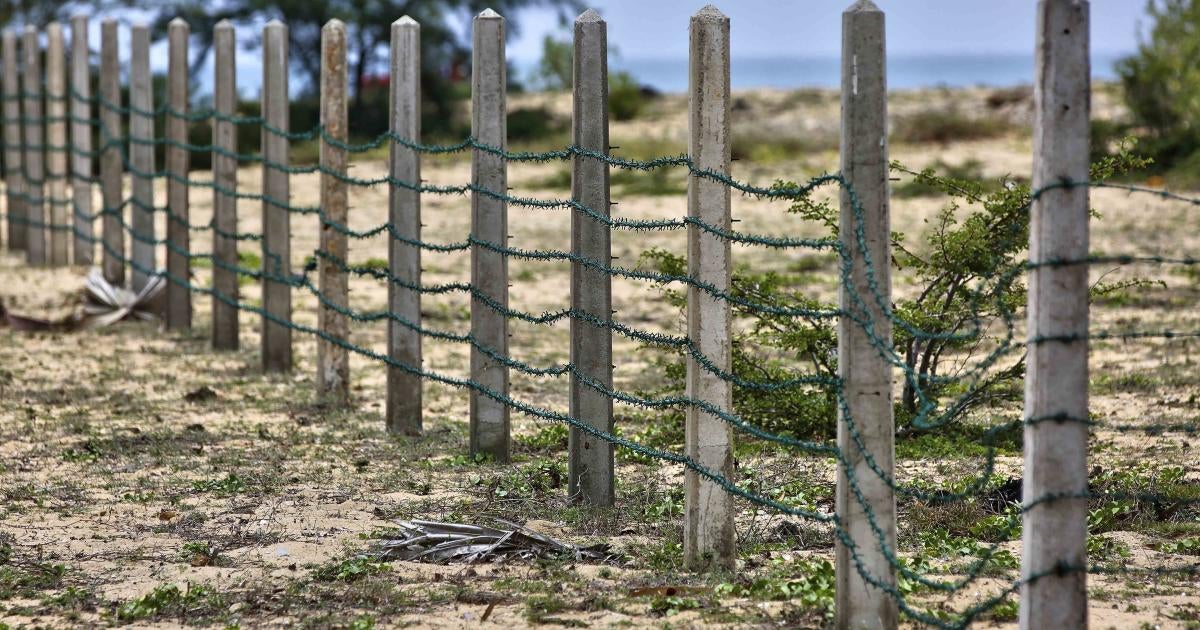As Sri Lanka’s Tamils Remember War Dead, Justice Remains Elusive
Every year on May 18, Sri Lankan Tamils mark Mullaivaikkal Memorial Day commemorating those who died in the civil war that ended in 2009.

In recent years the authorities have sought to suppress the commemorations, issuing court orders, intimidating participants, shutting down events, and even detaining mourners over allegations of terrorism. This year the anniversary comes at a time of unprecedented public protest in Sri Lanka. Amid a devastating economic crisis, thousands of protesters on the streets of Colombo, the capital, are demanding the resignation of President Gotabaya Rajapaksa. On May 9, pro-government thugs attacked the protesters, setting off a wave of violence and disorder across the country.
The president brought the army onto Colombo’s streets, a state of emergency is in force, and there are daily curfews.
The protests nevertheless continue.
The 26-year civil war between the separatist Liberation Tigers of Tamil Eelam (LTTE) and the Sri Lankan government was marked by countless atrocities by both sides. In the final months the LTTE used human shields, and the government indiscriminately shelled self-declared no-fire zones, allegedly killing tens of thousands of civilians. Hundreds of Tamils were forcibly disappeared in army custody. Many of the same people in power today held senior positions in 2009. President Rajapaksa was defense secretary at the time. Today’s chief of defense staff and defense secretary commanded troops responsible for war crimes. Since the war ended, people in the Tamil-majority north and east have frequently faced repression.
The Mothers of the Disappeared, who have protested since 2017 to learn the fate of their loved ones, endure government surveillance and intimidation. On March 20, police attacked and beat them. An Office of Missing Persons set up by the previous government is discredited.
The authorities have demolished memorials to Tamil victims of the war. It is crucial that this week’s memorial events go ahead without interference.
There is a hope among many that the demands for change now being raised in Colombo could lead towards a more pluralistic Sri Lanka. Human rights lawyer Ambika Satkunanathan wrote that “there is growing awareness and space to speak of issues previously thought not possible,” including war crimes. And Sri Lanka’s foreign partners, who are working to address the economic crisis, need to remember that steps towards lasting stability won’t succeed without protecting rights and addressing past abuses.
Read the full article at the original website
References:
- https://www.themorning.lk/10-held-under-pta-for-remembering-victims-of-war-released-after-7-months/
- https://www.theguardian.com/world/2022/apr/06/why-are-people-protesting-in-sri-lanka
- https://www.hrw.org/news/2022/05/10/sri-lanka-government-backers-attack-peaceful-protesters
- https://www.cpalanka.org/cpa-statement-in-regard-to-state-of-emergency-imposed-by-the-president-on-the-6th-of-may-2022/
- https://www.refworld.org/pdfid/55ffb1d04.pdf
- https://www.securitycouncilreport.org/un-documents/document/poc-rep-on-account-in-sri-lanka.php
- https://www.hrw.org/news/2021/08/25/families-sri-lankas-forcibly-disappeared-denied-justice
- http://adayaalam.org/situation-briefing-no-6-deteriorating-security-situation-for-families-of-the-disappeared-in-the-north-east-of-sri-lanka/
- https://www.amnesty.org/en/wp-content/uploads/2022/03/ASA3752782022ENGLISH.pdf
- https://www.newswire.lk/2021/05/31/ex-police-chiefs-appointment-to-the-office-of-missing-persons-sparks-concern/
- https://www.newindianexpress.com/world/2021/jan/09/outrage-after-war-memorial-for-tamils-in-university-of-jaffna-gets-destroyed-2247782.html#:~:text=Home%20World-,Outrage%20after%20war%20memorial%20for%20Tamils%20in%20University%20of%20Jaffna,Lankan%20civil%20war%20in%202009.
- https://groundviews.org/2022/05/15/the-tamil-struggle-the-aragalaya-and-sri-lankan-identity/
